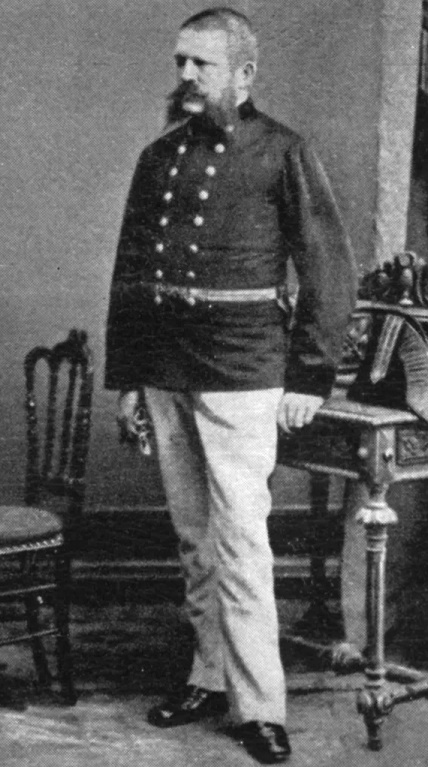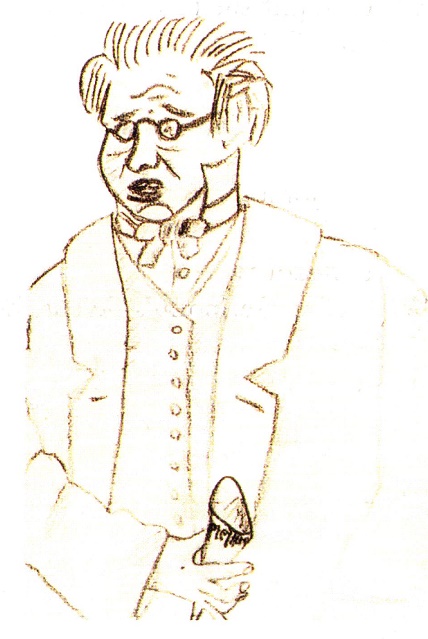
Adolf Hitler

|
Introduction Hitler as a Child Adolf Hitler was born in 1889. He did not come from an important family. He was not even born in Germany. He was the son of an Austrian customs official. His father was a hard-drinking bully, who beat his son. He died when Hitler was 14. Hitler's mother spoiled him. She died when he was 18. One of Hitler's teachers remembered what I he had been like at school: He wanted his own way. He was boastful, bad-tempered [and] lazy. He ignored advice and got angry if he was told off. At the same time, he demanded unquestioning obedience from his fellow pupils. Hitler despised all his teachers except his History teacher, who taught him to love Germany.
Alois Hitler |
 |
Hitler the Tramp In 1907 Hitler ran away to Vienna. He wanted to be an artist but he failed to get into art college. He became a dropout. He hung round the night shelters. He learned to hate. Most of all, he hated the Jews and the Communists. The Jews, he decided, were inferior. Communism would ruin Germany, he said. In 1914, Hitler joined the German Army. He was blinded in a gas attack. He won the Iron Cross medal twice. But in 1918, after Germany's defeat, he returned to the night shelters. He was bitter and angry. He said that the German Army had lost because it had been betrayed. He was sure it had been betrayed by ... the Jews and the Communists.
Hitler could draw buildings well. But this drawing of his teacher shows why he failed to get into art college.
After you have studied this webpage, answer the question sheet by clicking on the 'Time to Work' icon at the top of the page |
 |
1. Hitler in Vienna
The memories of Reinhold Hanisch, a tramp who lived in the same hostel as Hitler:
He was 21 when I knew him. He wore an ancient black overcoat, which had been given to him by an old clothes dealer, a Hungarian Jew, and which reached down over his knees. From under a greasy bowler hat, his hair hung down over his coat collar. His thin and hungry face was covered with a black beard, above which his large, staring eyes were the one prominent feature.
He was lazy and moody. He disliked regular work. He neither smoked nor drank, and he was too shy and awkward to have any success with women. His passions were reading newspapers and talking politics. He would hang around the night-shelters, living on the bread and soup that he got there, discussing politics. He often got involved in heated arguments. When he got excited he would shout and wave his arms. Sometimes people laughed at him; at other times they were oddly impressed.
One evening, I remember, Hitler went to a cinema where the film The Tunnel was being shown. In this film a rebel appears who rouses the working masses to rebellion by his speeches. Hitler almost went crazy. The impression it made on him was so strong that for days he talked of nothing but the power of the spoken word.
Interrogating the sources:
For this source – looking at all the
details of its
provenance – how true do you think its account is likely to be?
• Suggest reasons why The
Tunnel had such a great effect on Hitler at
that time of his life.
2. Historians' Interpretations of Hitler
Historians have formed many interpretations of Hitler since his death – here is a list of the things some of them have said:
Alan Bullock (1952): "an unprincipled opportunist". Hans Haber (1953): "a raving maniac". William Shirer (1960): "possessed of a demonic personality, a granite will, uncanny instincts, a cold ruthlessness, a remarkable intellect [and] a soaring imagination ... the last of the great adventurer-conquerors". AJP Taylor (1967): "loathsome ... with a depth and elaboration of evil all his own ... a piece of human nature on a gigantic scale". C Fitzgibbon (1970); "this boring, squalid, uncouth monster." Joachim Fest (1973): "one of the greatest statesmen of Germany". KD Bracher (1976): "racism gone mad". John Toland (1977): "probably the greatest mover and shaker of the twentieth century". Ian Kershaw (1998): "Hitler's ideological goals, his actions and his personal input into the shaping of events need to be given the most serious attention. But they explain far from everything. We ... must at the same time locate these within the social forces and political structures which permitted, shaped and promoted the growth of a system which came increasingly to hinge on personalised, absolute power." |